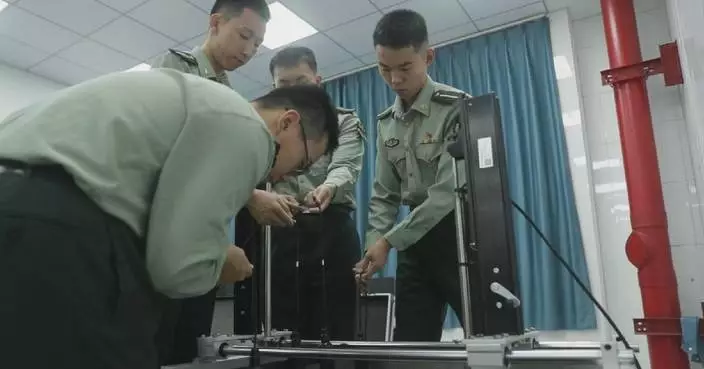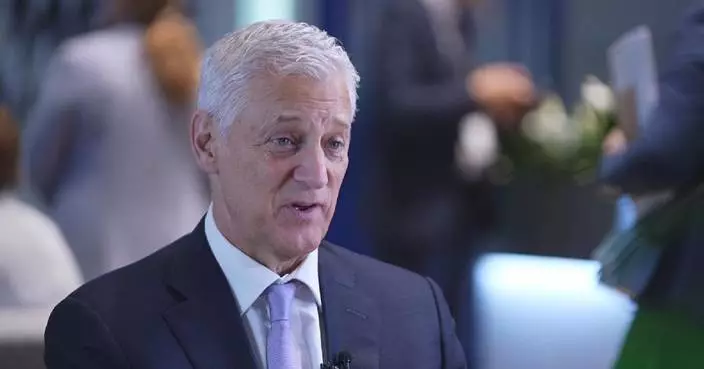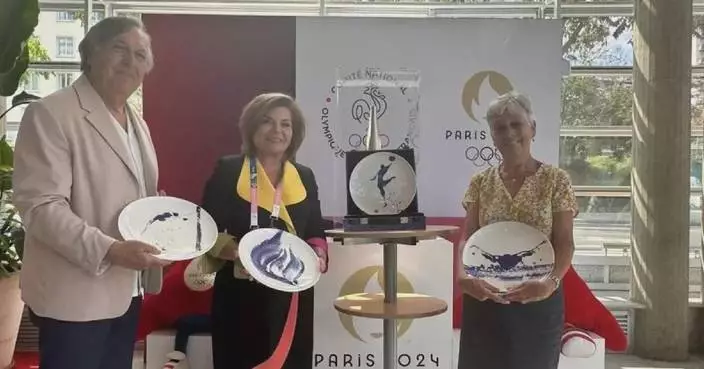Intellectual property (IP) harmonization and protection are important, particularly in rapidly evolving sectors like AI and e-commerce, according to Nazli Korkut, Secretary General of the International Association for the Protection of Intellectual Property (AIPPI).
The 2024 AIPPI World Congress opened in Hangzhou, capital of east China's Zhejiang Province on Saturday, with discussions centering around four key draft resolutions on patents, trademarks, copyrights, and rights enforcement.
This event marks the first time the event has been held in China in its 127-year history. In an interview with China Global Television Network (CGTN), the group's secretary-general, Nazli Korkut, highlighted how China stands to benefit from IP protections.
"It's good to see from different perspectives, from different jurisdictions, what this IP harmonization can be, how far it can go. So for the IP community in China, the IP market in China, we all know that China is growing every year with all the industry and communication and all AI tools. It's very important that there is a big pool of talent and innovation in China. So China, just like all the other countries, has to benefit from the IP protection systems, which makes it more sensitive to IP protection in the country and across the boards," Korkut said.
Korkut also stressed the need for legal frameworks to keep pace with advancements in technologies such as e-commerce and AI, ensuring effective IP protection and fostering innovation in these areas.
"E-commerce, or AI or other technologies, from a general perspective, they advance in front of law. Law has to catch up while introducing a legal framework, a solid legal framework regarding the implementations within these areas. So this is very important for AIPPI, because AIPPI also prepares position papers in order to touch upon base some important points. This will also shape other future questions of AIPPI regarding which already has about e-commerce and it will also tackle, especially the topics regarding AI," she said.
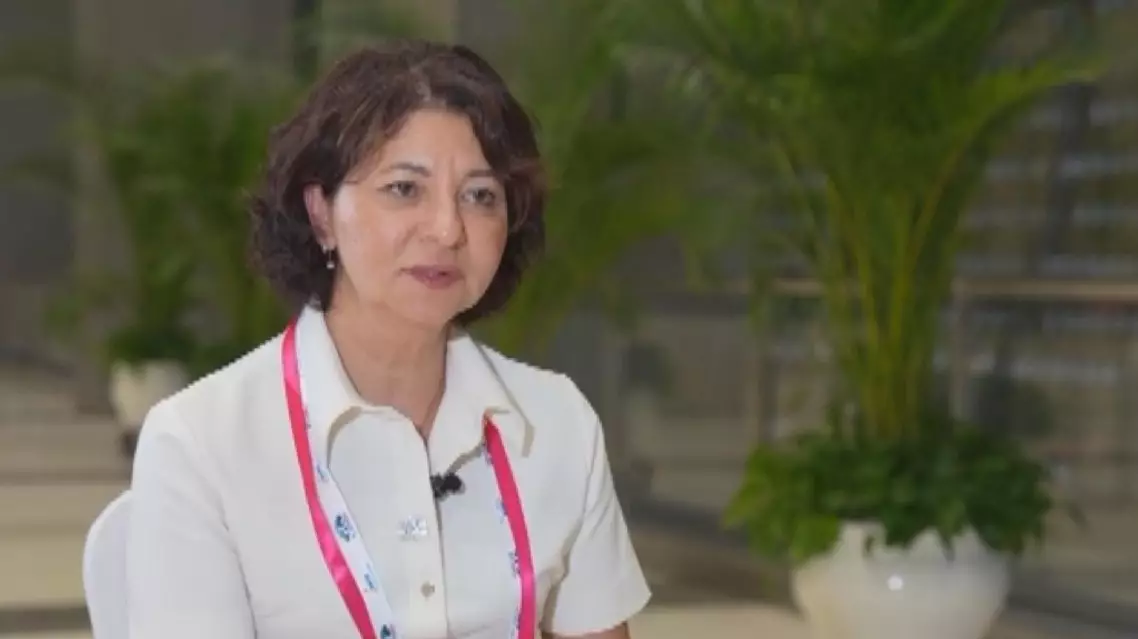
AIPPI Secretary General stresses IP harmonization, protection
A green and low-carbon medical base in east China's Jiangxi Province has been committed to sustainable growth in recent years by retaining original vegetation, reducing energy consumption, recycling liquid and solid wastes, and tapping on renewable energy. The Jiangzhong Pharmaceutical Valley in Nanchang, capital of Jiangxi Province, is the core production base of Chinese pharmaceutical firm CR Jiangzhong. The low-carbon factory is renowned as "the most beautiful factory in China."
Unlike typical medicine factories, forests, lakes and so many species of wildlife animals can be seen in the nearly 187-hectare green valley, but not a single pipeline throughout the whole industrial area.
At the front door of Jiangzhong Pharmaceutical Valley are three magnificent giant reliefs, engraved with 68 famous Chinese medicine doctors from Ancient Era to the end of the Qing Dynasty (1644-1911), showcasing the company's inheritance of thousands of years of the traditional Chinese medicine culture.
The liquid preparation workshop at the production base has been rated as the Intelligent Manufacturing Pilot Demonstration Base by the state.
"Although there are no workers, more than 100 robotic arms and intelligent driverless transport cars play important roles here. So, from the pretreatment of Chinese herbal medicine to the warehouse delivery of cargo from storage, the entire production is fully automated and continuous, thus not only improving the producing efficiency but also ensuring the stability of product quality," said Ding Yuanyuan, a guide of the valley.
The base's manager highlighted the core principles of natural authenticity and green ecology in building, operating and maintaining the factory over the past 20 years.
"We have implemented three major measures - carbon reduction at the source, carbon cut in processes, and carbon sequestration at the end. First, in terms of carbon reduction at the source, we have increased the proportion of clean and renewable energy by constructing three phases of photovoltaic power stations. Currently, clean energy accounts for 30 percent of the total energy use. Regarding carbon cut in processes, we focus on upgrading the production methods. For example, we have transformed our production lines from traditional intermittent production to continuous manufacturing. This change has significantly shortened the production cycle and improved production efficiency. As for the carbon sequestration at the end, we have achieved water reuse standards for treated wastewater. By reusing recycled water, we save over 140,000 tons of water annually," said Zhong Zhijian, general manager of CR Jiangzhong Wanli Manufacturing Base.
He also noted that the factory has made the most of medicine residue to mitigate environmental pollution. For instance, medicine residues from digestive tablets are fermented to become animal feed.
Zhong said the production base can now save 2,200 tons of carbon a year by increasing the use of renewable energy sources, while reducing energy consumption has helped create at least 5 million yuan (about 703,600 U.S. dollars) in economic benefits over the past five years.
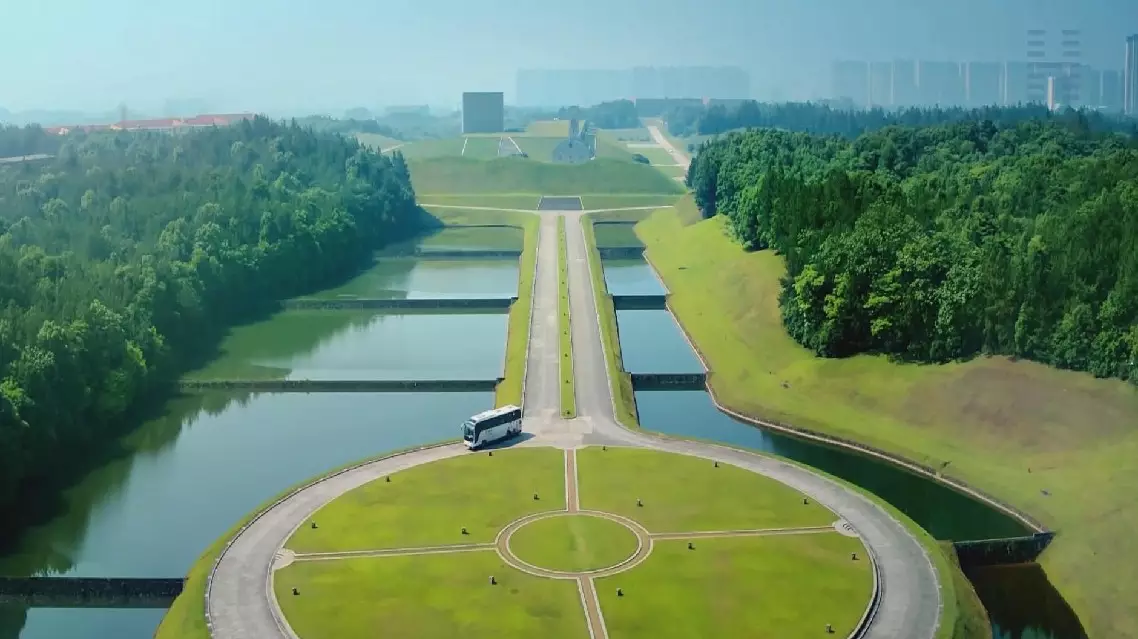
China's "most beautiful factory" committed to sustainable growth in medicine production






